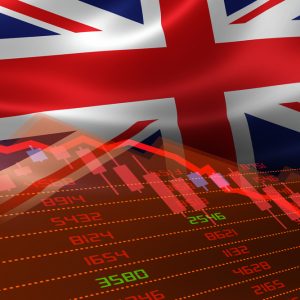
According to the Office for National Statistics (ONS), gross domestic product (GDP) is estimated to have grown by 0.2 per cent in July 2022 following a fall of 0.6 per cent in June 2022.
While July’s figure showed there was some growth in the UK economy, it was below the market consensus of 0.4 per cent. The services sector was the main driver behind the rise in GDP, growing 0.4 per cent off the back of growth in information and communications.
However, production fell 0.3 per cent after a fall of 0.9 per cent in June which was due to a fall of 3.4 per cent in electricity, gas, steam and air conditioning supply.
Construction also fell for the second month in a row (0.8 per cent following 1.4 per cent fall in June). The ONS noted the decline “came solely from repair and maintenance” which fell 2.6 per cent.
Overall, GDP was flat in the three months to July compared with the previous quarter.
The industry reaction
Industry experts were downbeat about the latest ONS announcement with several focusing on surging energy prices, the cost-of-living crisis and stagnant wage growth.
Lewis Shaw, founder of Shaw Financial Services noted that, despite the government’s announcement of a freeze on the energy price cap at £2,500, millions could still be pushed into fuel poverty.
He said: “[The price] is still almost double what it was in October 2021, when it was set at £1,277. At that lower rate, we had over three million people in fuel poverty. So how many people will this government push further under the water when the price rises to £2,500?
“If your wages aren’t rising, yet the cost of everything else is, it doesn’t take a genius to determine what happens next. Consumer demand will fall, and high street activity will shrink, forcing businesses to lay off staff because of dwindling profits and soaring costs. Add into the mix rocketing mortgage rates, and you’ve got a perfect storm.”
Rob Peters, director at Simple Fast Mortgages echoed Shaw’s point about the rising cost of living and flatlining wages. “These are two of the biggest challenges at present,” he said.
“It doesn’t take a rocket scientist to calculate that if costs go up, but wages don’t, then more people will face poverty. This will become more apparent in the coming winter months when energy usage is at its highest.”
He also painted a dismal picture of what life could be like for businesses – especially smaller businesses. “I expect to see a large retreat from the high-street as small businesses look for ways to reduce overheads and a physical shop is a costly overhead. The number of business failing due to the cost of materials will also increase.”
However, he did add a note of optimism, saying: “Many will innovate and produce creative and successful alternative businesses.”
Recession fears and a run on the pound
Richard Pike, chief sales and marketing officer at Phoebus Software noted that, despite the 0.2 per cent uplift, the country could “technically hit a recession sooner rather than later. The oil price cap seems to be affecting the markets positively with prices lowering and this hopefully will assist the long-term situation.”
He also highlighted the fact that “the credit industry is seeing an upward shift in collections activities and this is only likely to continue for the foreseeable future.”
For Graham Cox of Bristol-based Self-Employed Mortgage Hub, the biggest concern was “the possibility of a run on the Pound”.
He said: “Some analysts are predicting sterling could soon reach parity with the US dollar. With oil and gas imports priced in the greenback, that would be highly inflationary in the short term and a disaster for the economy. There’s no denying business confidence is at rock bottom right now.”
However, as with Peters, Cox attempted to inject some positivity into the proceedings by saying: “Often things aren’t as bad as they first seem, and I suspect inflation will start falling just as quickly as it’s risen.”
















